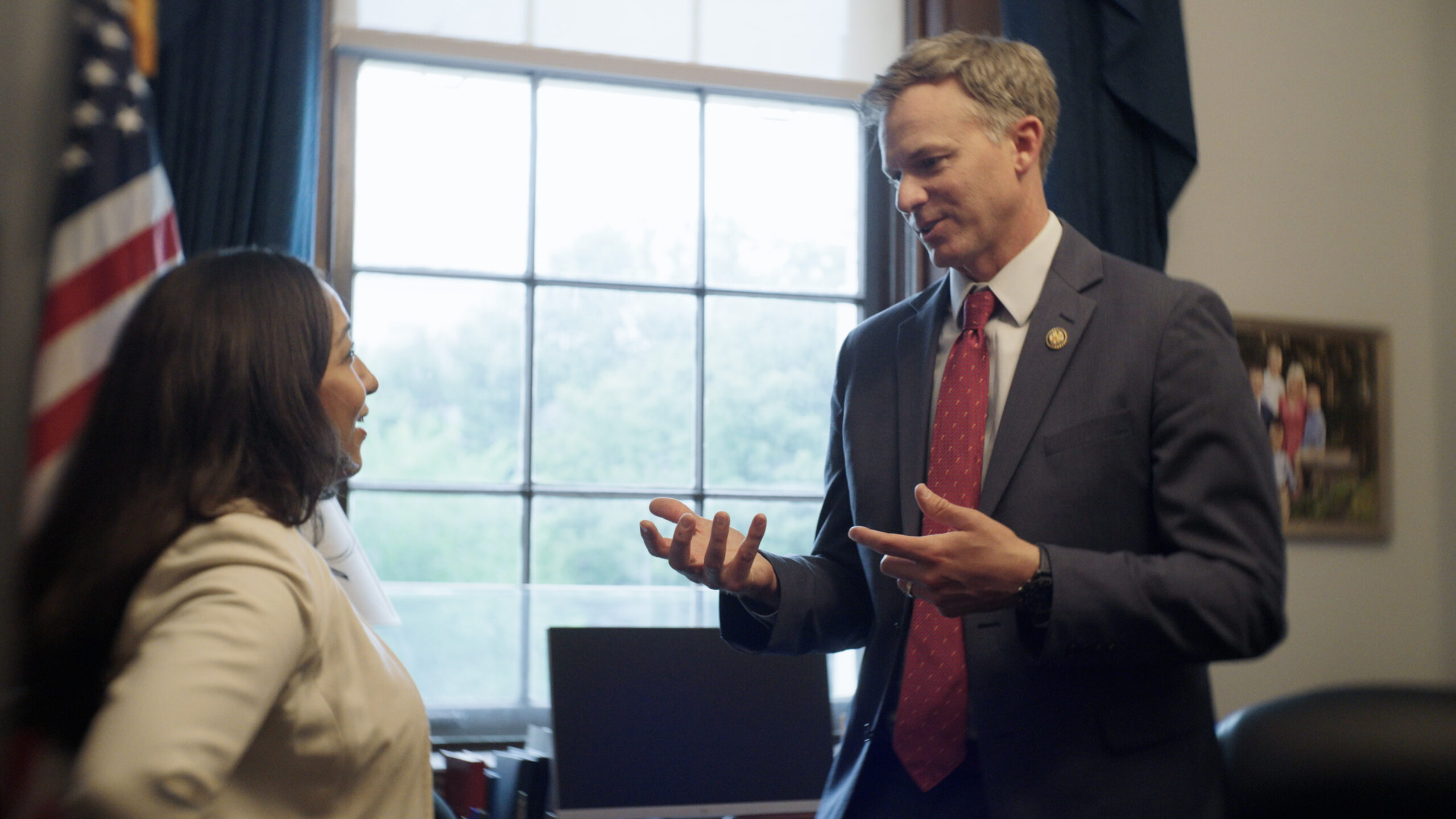Rep. Blake Moore Is Proving That Outcomes Matter More Than Outrage
July 17, 2025
On May 21, 2025, Rep. Blake Moore, R-Utah, met with Future Caucus President and CEO Layla Zaidane to discuss the culture of cross-partisan lawmaking in Congress and the lessons he’s learned since first taking office in 2021. The conversation — part of a documentary project in collaboration with the Aspen Institute for the John P. McNulty Prize — explored Moore’s experience building relationships across the aisle, his tenure as co-chair of the Congressional Future Caucus, and his continued efforts to advance pragmatic, bipartisan policy.

By Catherine Nichols
At the height of the COVID-19 pandemic, when social distancing mandates gave a physical dimension to long-standing political divides in the U.S. Congress, cross-partisan collaboration seemed near impossible, whether within the legislature or with the White House. Rep. Blake Moore, R-Utah, was determined to prove otherwise. Upon taking office in 2021, Moore’s pragmatic determination propelled him to bridge gaps across party lines — and phone lines — leading him to become the most successful freshman Republican that session, with bills addressing issues from environmental conservation to countering cybercrime.
Just how did Moore become so successful in his first term, without the usual toolkit of face-to-face meetings and social gatherings helping pave the way for political alliances?
While he never expected it to be easy, Moore says he had no idea just how difficult cross-partisan communication would turn out to be.
“I knew there was going to be a divide between Republicans and Democrats, but everything has to eventually pass with a 60 vote margin in the Senate, and in my recent memory and likely in the near future, that’s not going to be controlled by one party,” Moore said. “Everything has to have dialogue to get bipartisan support, so these conversations should be easier.”
When Moore began his first term, he quickly learned: “They weren’t.”
Many of his colleagues in the U.S. House of Representatives were not interested in having cross-partisan conversations about policy, and the isolation mandated by COVID protocols only made the divide feel larger. However, Moore refused to be caught in political gridlock or swept away by the tides of partisan rancor.
“If we don’t have [dialogue], then we don’t have legislation,” he said. “You have to go out of your way to communicate with people that aren’t necessarily in your own committee or in your own conference.”
Part of Moore’s strategy was to begin forming personal relationships with other legislators early on, not just as lawmakers whose goals and strategies might overlap in surprising places, but as individuals taking on large-scale issues in a uniquely challenging moment. Even though his approach to a given policy might differ from that of his colleagues across the aisle, conversations underpinned by respect and curiosity often revealed that they agreed on fundamental goals enough to negotiate toward a mutually acceptable solution.
Remaining active and grounded in his community in Utah was especially important to Moore. Sensational media coverage of Congress incentivizes many lawmakers to make their decisions based on publicity and politics, rather than on policy, but Moore recognized that such an approach would not help him pass meaningful legislation in service to his constituents. No matter how divisive certain issues or how volatile the atmosphere in the chamber, Moore aligned his goals as a lawmaker with the needs of Utahns, putting effectiveness ahead of partisanship — especially when those two ends explicitly conflict.
“When you’re back in your community […] and you talk to the folks that you serve, they just want to see results,” he said.
Moore’s success in his first term demonstrates what many young people already know: legislators who bridge inter- and intra-party lines in order to work together and focus on outcomes geet things done. Moreover, headlines can be deceiving; effective lawmaking is not as rare as it may seem in popular media.
“If people were focused on getting outcomes, instead of the constant fight that we love to get ignited with,” added Moore, “they would appreciate that more members of Congress were trying to truly solve problems.”






Join 1,900+ BIPARTISAN LEADERS NATIONWIDE
Be a part of a network of lawmakers committed to governing effectively, passing more representative public policy, and increasing public trust in democracy.